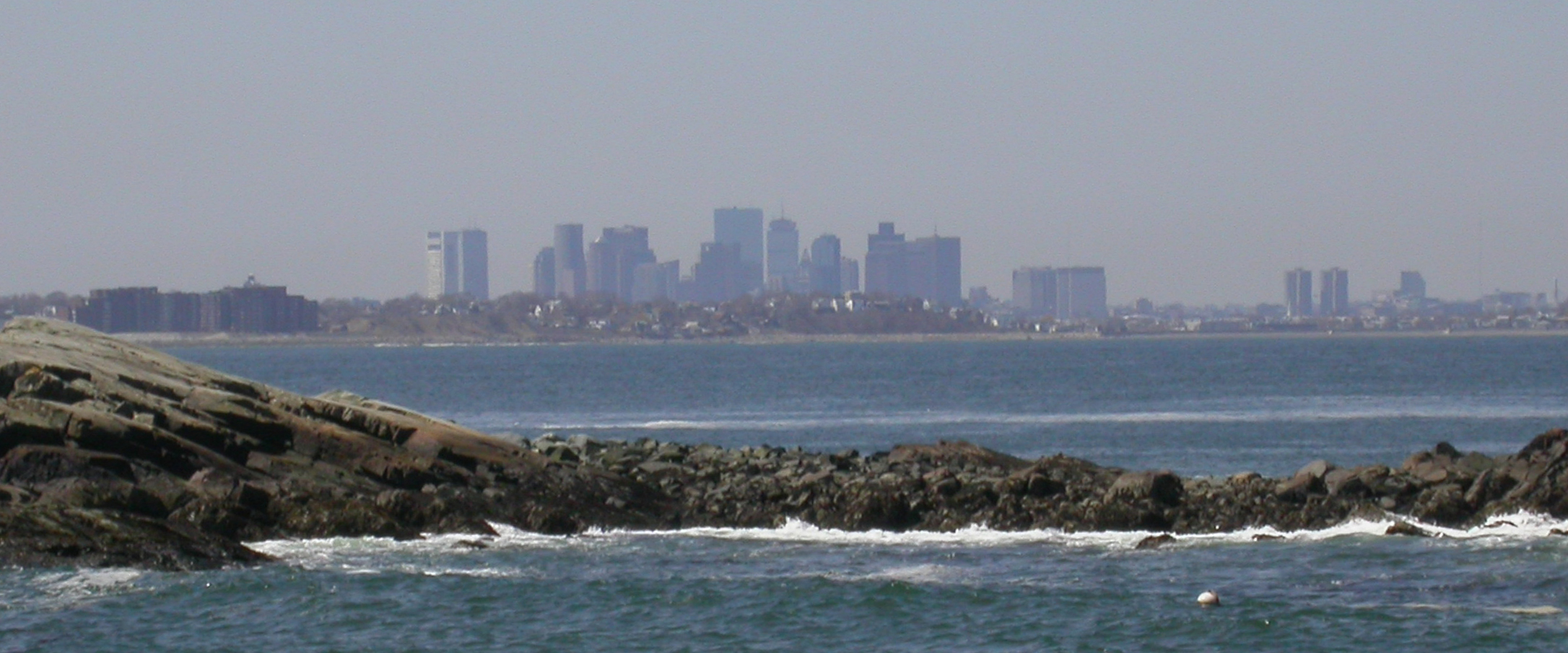by Greg St. Martin
Brian Helmuth, a professor of marine and environmental sciences and public policy at Northeastern, co-authored a paper published July 30 in the journal Nature Climate Change in which he and his colleagues argue for greater integration of science research into U.S. climate and ocean policy—a need they say has become increasingly more urgent due to the rapid pace of global environmental change. Based at Northeastern’s Marine Science Center, Helmuth is an expert on environmental policy, ecological forecasting, and sustainability, and his research explores the effects of climate and climate change on the physiology and ecology of marine organisms. Here, he discusses the implications of his new paper and the work being done through the university’s Urban Coastal Sustainability Initiative.
1. The paper outlines the traditional barriers to connecting scientists and policymakers, but you and your co-authors also note that there’s now a “window of opportunity” like never before for these groups to come together to “enhance the resilience of oceans to climate variability and change.” Why is the ground fertile now to make these connections, and how can this opportunity be maximized?
The story behind how the authors on this paper connected is a great example of why we are beginning to gain some serious forward momentum. The four of us helped to lead a technical team that assembled information for the first ever “Oceans” chapter of the National Climate Assessment. What makes this assessment different from the previous three efforts is that it is very solutions-oriented and seeks input from outside the academic world. Not only did this NCA and associated technical inputs document the rapid changes we are observing in the U.S., but it also focused on societal responses to these changes. In this way I think the scientific community is beginning to converge with policy needs—more and more scientists are beginning to ask, “What information do we need to protect ecosystems and human populations from climate change?” Northeastern is at the forefront in this regard as use-inspired research and connections with the needs of society have been a central focus of the university for many years. In my opinion the best way to move forward is to continue to break down traditional barriers, bringing academic researchers, policymakers, NGOs, industry, and business leaders—pretty much every corner of society that we can think of—to the table to discuss how we will deal with the inevitable changes that are coming down the road.
2. In the paper, you and your co-authors note that relatively few climate adaption actions have been developed for marine systems compared to those developed for land systems. Why is this the case, and how can these land-based efforts provide transferable methods and insight?
The world’s oceans affect everyone on the planet in some way, and coastal zones are the lifeblood of our health, well-being, and economy. It amazes me how often we as a society forget this simple fact. Humans often tend to be reactionary rather than proactive, and we respond to what we see. Studying the oceans is hard—while we know quite a bit about how they function, less than 5 percent of the sea bottom has been explored. Adaptation strategies have been difficult in part because we are still learning how the oceans work. However, we definitely know enough to act. The biggest barrier is probably the lack of connection between people and the ocean. You only protect what you love, and it is easy to ignore problems that are happening far away. We really need to get to a point where it does not take a superstorm to remind us how important the oceans are to all of us.
3. This summer, you participated in Mission 31, an underwater research expedition. How did these research efforts align with the concerns raised in this paper, and what are your plans to build on your M31-related research back at Northeastern?
Fabien Cousteau’s Mission 31 gave our team an unprecedented opportunity to intensively explore an impacted reef for a month. Even more important, it allowed us to share the excitement of what we were doing with literally hundreds of millions of people. It helped to provide a spotlight on the Urban Coastal Sustainability Initiative at Northeastern, in that many of the problems that we are addressing are directly in line with those studied during Mission 31. Specifically, how do we live sustainably as part of our natural environment, rather than separate from it? We are already discussing ways that the Northeastern team can continue its work with Cousteau on future missions. We are also building on our successful collaboration with the Museum of Science to develop new ways of disseminating what we discovered during Mission 31, and to continue to share our ongoing research on coastal marine science in ways that help people to connect with the ocean environment.
Originally published in news@Northeastern on August 5, 2014.

